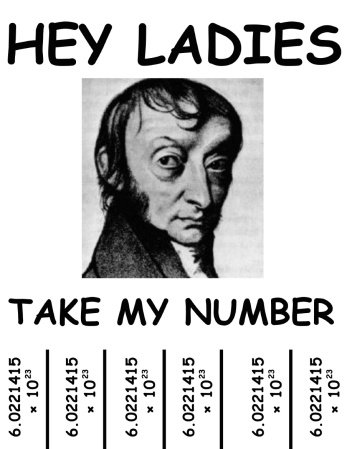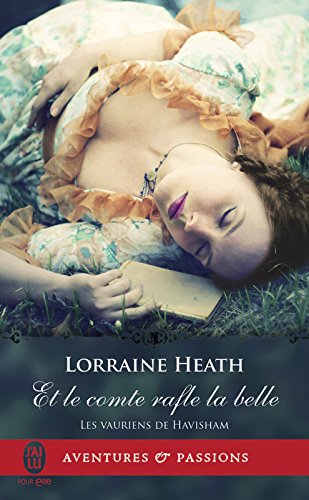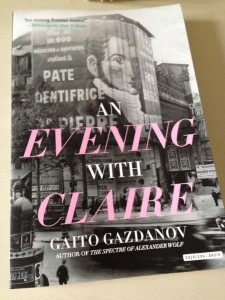They don’t realise it yet, but my children will become the biggest victims of my women-only year. No exotic beaches, ice creams or football stadiums; next year we’re going on holiday to Ashford and Hastings!
Like all fairy tales, it all started long ago in the library. Once upon a time, there was ‘Small Holdings’, Barker’s second novel and my introduction to her work. As is my custom, I don’t remember anything about the story, but thanks to the worldwide web you can breathe a sigh of relief: ‘Small Holdings’ was also replete with strange characters:
An attractive park outside London plays host to Phil, a chronically shy gardener who feels truly at home only with his plants. Perhaps his closest human ally is his gentle colleague Ray, a man with all the sense and verve of a Savoy cabbage. Phil is also pining for an unattainable woman, but until her obsession with trucks abates, he knows he has little chance at true love.
Soon, however, another problem breaks into Phil’s melancholy but orderly existence: He and Ray are being tormented by their unpredictable supervisor and a malevolent one-legged man. Phil strives nobly to keep his balance despite being systematically mystified, brutalized, drugged, derided, and seduced. But when he loses his eyebrows, he decides to fight back.
We next met in ‘Burley Cross Postbox Theft’. Again, the plot is nothing more than a big black hole (before you start worrying: my memory works pretty well, but it seems physical constants and other useless trivia seem to get precedence), but even worse: according to goodreads, I only gave her three stars. Undoubtedly, it was me, not her.

Because last year, she blew me away with ‘Darkmans’. 838 pages filled with the weirdest creatures, no discernable plot. And still, she held me in her grips for two whole weeks. A whirlwind of a book and a true masterpiece.
Beede and Kane are father and son, and work in the local hospital resp. the local drugs hole. Their relationship has been tense and difficult for years, but they find each other again in a shared love for chiropodist Elen. Dory, Elen’s husband, is the primus inter pares of the weirdos: half German and convinced that a mediaeval court-jester is the actual father of his only son, Fleet. Fleet, who is building the cathedral and adjacent buildings of Albi out of matchsticks. And clearly, it’s contagious because slowly everybody becomes enthralled by the 500-year-old ‘Darkmans’. Unexplainable, but very very good. Anyone who is still doubtful: there’s also a Kurdish refugee with a lettuce phobia  .
.
Then, I already toyed with the thought to spend our next summer holiday in Ashford, to discover the book’s background with my own eyes. Luckily for my two boys, that awful idea did not go through and the Channel Tunnel’s railway station was not the past two summers’ main attraction  .
.
 Ashford International Railway Station
Ashford International Railway Station
Fast forward to middle of my women-only year and the call of South East England became too strong again. Wesley is the ideal travel companion: he steals antique ponds, sleeps inside horses, eats seabirds and is very keen on middle-aged librarians. So, obviously, he has a magnetic effect on people and has developed quite a following, the Behindlings as he calls them. Together they embark on 500+ pages of wicked fun.
‘But those poor kids, dreary gloomy Ashford and Hastings, that’s not very appealing’ I hear you thinking. Very true, but they should consider themselves lucky they don’t have to go to the H(A)PPY world. Barker’s latest novel is set in a post-post-apocalyptic future belonging to The Young. They are Innocent. They are Clean and Unencumbered. They work (but never struggle) to stay Perfect, thanks to The Graph, The Information Stream and The Sensor.
Mira A, however, is merely H(A)PPY, with the A struggling in parenthesis. Despite the administration of chemicals and the readjustment of her Oracular Devices, the music of 91.51.9.81.81.1.2 (or Agustin Barrios as the Paraguayan guitarist was known in the Manacles of The Past) keeps leading her astray.
Prepare for a book unlike anything you have read before.


‘The Circle’ by Dave Eggers or ‘We’ by Yevgeny Zamyatin have met their master, or better, their high priestress of weird. But all of a sudden, Ashford looks a lot more attractive as holiday destination.
And I already know which book to take along: ‘In the Approaches’, so son number 1 can fulfill this summer’s promise:
‘When I’ve learnt English, I also want to read that book with the character who speaks with the author.’
To quote Mr Clifford Bickerton, the local odd-jobs man and self-conscious pawn in the hands of the author: ‘Does she ever get around to telling a story? And aside from that (how can you write a story without actually telling a story?) I just feel like she’s really over-egging the pudding this time around. I can’t seriously imagine her Average Reader would approve (is that you? Or are you just flicking through this at your mother’s house during the Christmas holidays – bored out of your tiny mind – because it’s something she’s been forced to read by her book group?) (I don’t have a clue what a book group is. So I don’t even know why I mentioned that). I think they’ll all say she’s losing the plot. The book’ll bomb.’
No, Nicola Barker does not tell conventional stories. She is sublime at not telling conventional stories, though.
The aforementioned Mr Clifford Bickerton is convinced the cow Author (his/her own words) is intent on getting him killed and suffers direly under her spell, being made to use arty-farty pretentious words and what not.
Another character on the sidelines is Teobaldo, a parrot who is not particularly fond of his owner ‘Bitch’ (the parrot’s words, not mine) but hates the backstabbing sneaky new mynah bird, sheer evil genius King, even more.
As to the main plot: let me suffice by saying it’s fuzzy. In 1984, Mr Franklin D. Huff attempts to reconstruct and understand the bizarre and tragic events which befell Orla, an Irish-Aboriginal visionary girl thirteen years ago. But who cares, because buttocks are sealed together en route to Douai Abbey and more craziness ensues





